From pv magazine USA
MiaSolé, Solar Cloths, and Renault have teamed up to release a “shatterproof” 300 watt solar panel to be attached to the wind deflector of Renault trucks. The solar panel’s purpose is to help the vehicle run electric items while the truck is turned off. The panel can reduce or eliminate fossil-burning engine idling, thus reducing emissions.
The solar panel is made of MiaSolé’s thin film solar cells, and is combined into a custom solar panel by Solar Cloth. Although the product is not intended to directly increase the truck’s range, MiaSolé’s kits can replace diesel auxiliary power units, which typically burn diesel. Indirectly, then, this increases range by eliminating fossil fuel consumption used to power onboard electrical equipment when parked.
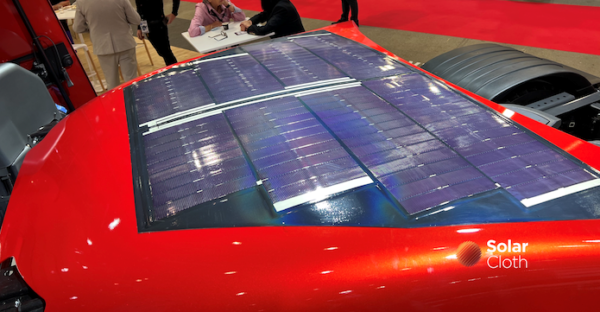
MiaSolé uses a solar cell with at least 18.64% efficiency, which produces a nearly 17% efficiency from the assembled solar panels. The company’s Solar Ride Kit datasheet from 2018 offers five different kits composed of one or two of its solar panels and a charge controller.
The data sheet lists the charge kit’s maximum power at 530 watts; however, the 60 Amp charge controller suggests up to 3.2 kW of maximum solar output. In addition to the shatterproof kit, MiaSolé’s website boasts a product line which can cover part, or even all, of a truck trailer.
These larger kits are more customizable, but they are still based on the charge controllers, and of course MiaSolé’s solar panels.
There is still much to debate over the solar energy generation benefits of moving a vehicle versus powering only its electrical equipment. However, the market has been getting creative, and evolving quickly.
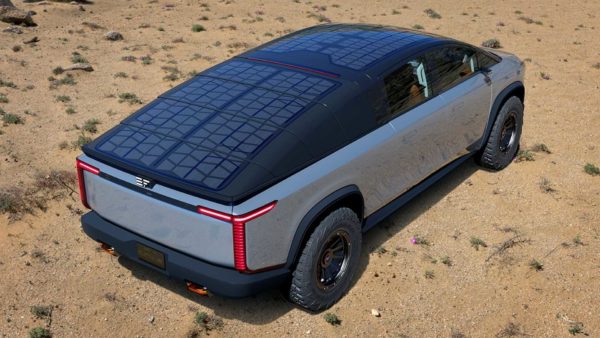
Image: SPI Energy
Of course, extreme versions of solar powered vehicles exist — like the solar car races across Australia, and the Solar Team Eindhoven’s SolarCoach that recently traveled across Europe.
Fortunately, more accessible options have been appearing as well.
Sono has launched an IPO to raise money to develop and build its small, solar-powered city car. Tesla’s Cybertruck is expected to come with an option for solar panel option to cover its cargo bed, with the company suggesting that it would add 15 miles of range per day.
China’s SPI Energy also has announced its EdisonFuture EF1-T, a CyberTruck-esque vehicle which comes with a rooftop and cargo bed-covering solar panel kit.
Setting sail
Developments have not been confined to land-based transportation. Some boat manufacturers have equipped yachts with solar as a primary power source, as well as yachts with amenities complemented by solar power.
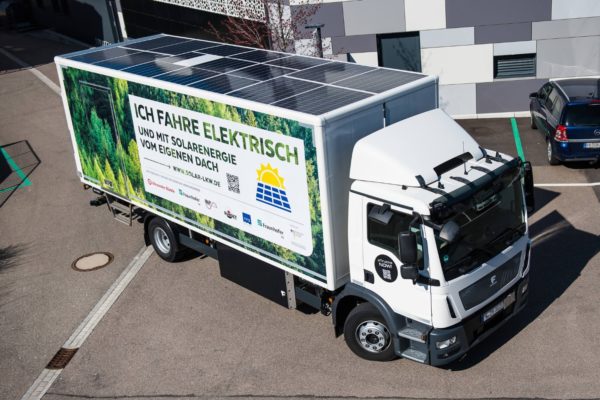
Image: Fraunhofer Institute
And while some may choose to scoff at the apparently low numbers of miles-per-day that vehicle-mounted solar panels provide, real world data suggests that we should give the prospect some serious consideration.
For one thing, the average driving distance in the U.S. is somewhere between 20 to 40 miles per day. If a solar roof can add 10 miles or more, roof panels would provide 25 to 50% of miles driven purely on free sunlight, without even plugging in.
For another, it’s worth noting that Germany’s Fraunhofer Institute for Solar Energy Systems is advancing vehicle integrated solar panels.
In fact, Fraunhofer has put together a full team to help develop this research line. Work is focused both on large delivery vehicles, like the truck above, as well as technologies that integrate solar into car roofs.
Authored by JOHN FITZGERALD WEAVER
This content is protected by copyright and may not be reused. If you want to cooperate with us and would like to reuse some of our content, please contact: editors@pv-magazine.com.
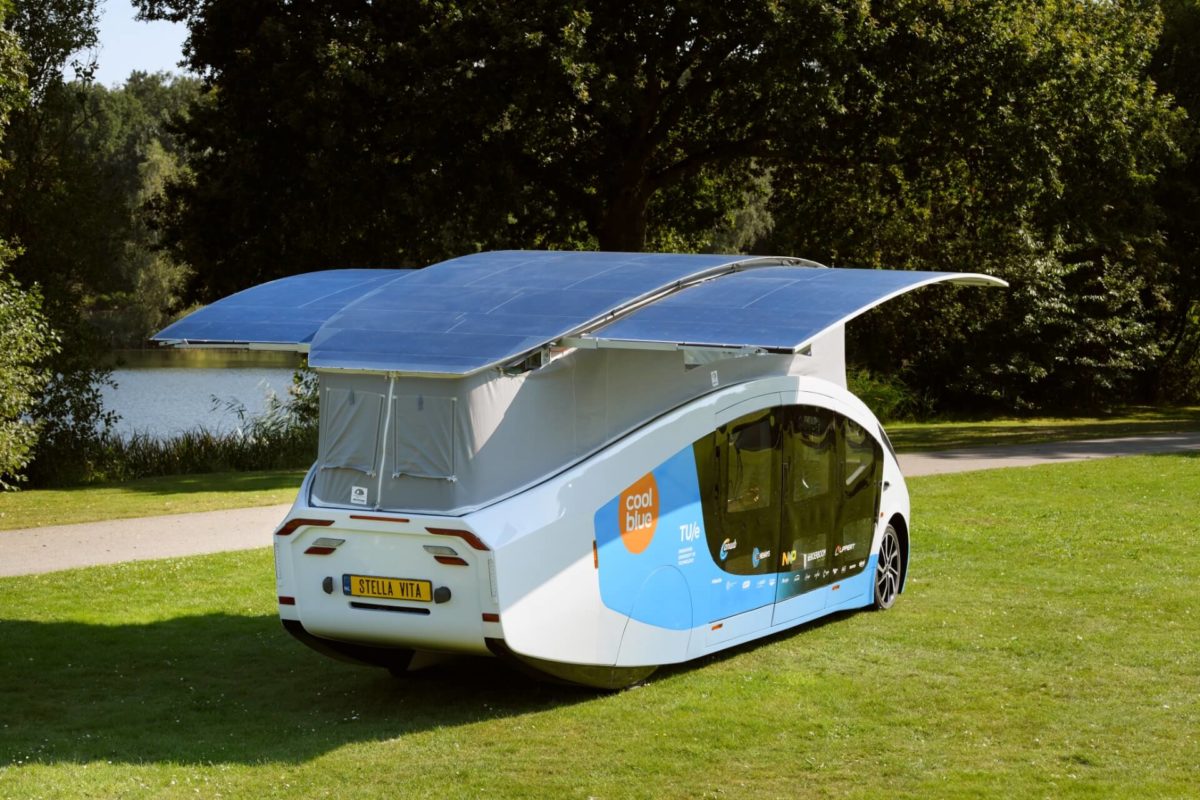





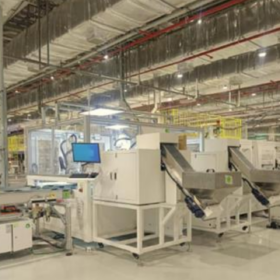
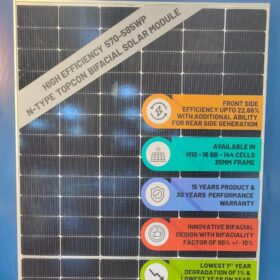
By submitting this form you agree to pv magazine using your data for the purposes of publishing your comment.
Your personal data will only be disclosed or otherwise transmitted to third parties for the purposes of spam filtering or if this is necessary for technical maintenance of the website. Any other transfer to third parties will not take place unless this is justified on the basis of applicable data protection regulations or if pv magazine is legally obliged to do so.
You may revoke this consent at any time with effect for the future, in which case your personal data will be deleted immediately. Otherwise, your data will be deleted if pv magazine has processed your request or the purpose of data storage is fulfilled.
Further information on data privacy can be found in our Data Protection Policy.